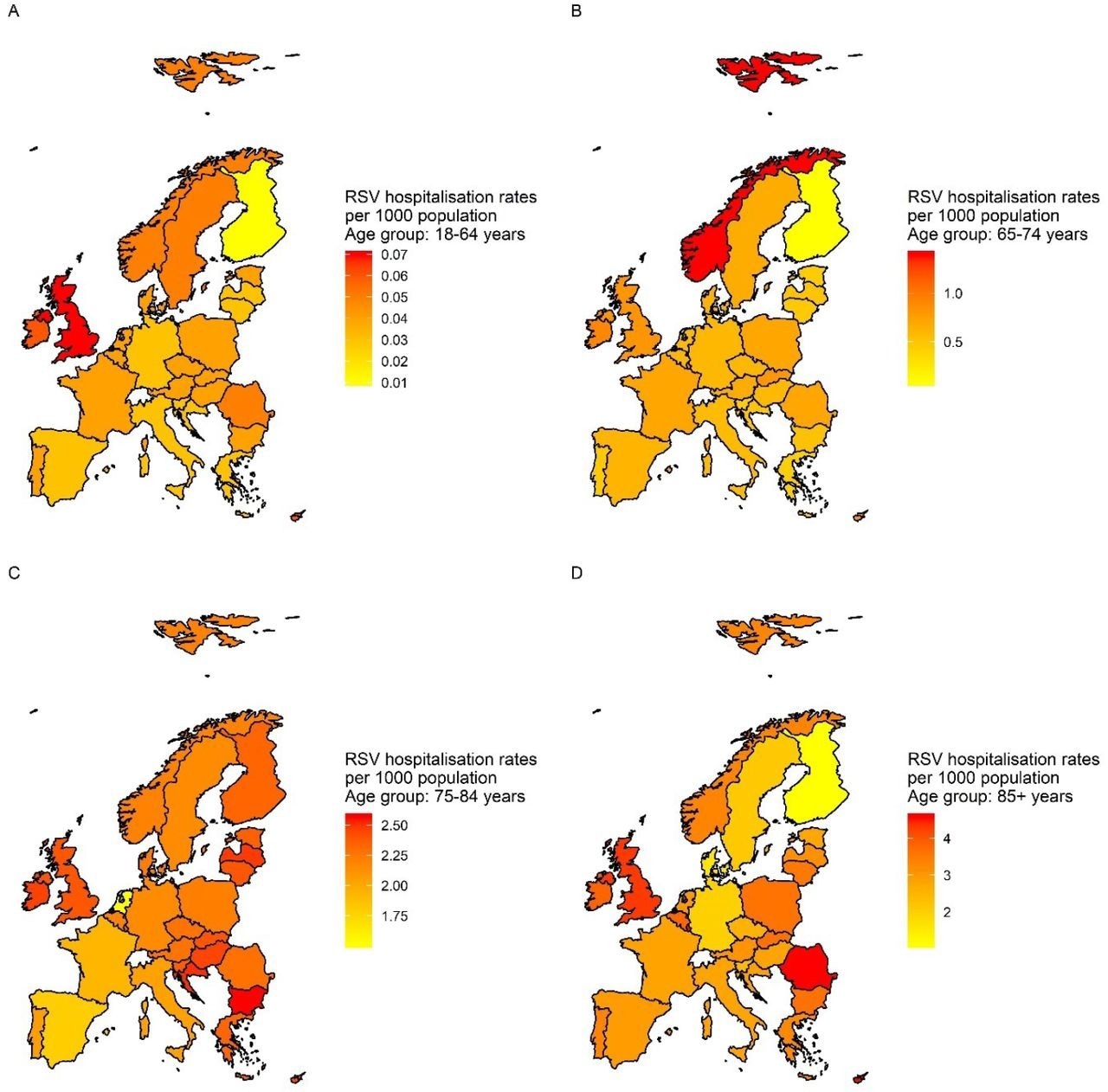
 *Important notice: medRxiv publishes preliminary scientific reports that are not peer-reviewed and, therefore, should not be regarded as conclusive, guide clinical practice/health-related behavior, or treated as established information.
*Important notice: medRxiv publishes preliminary scientific reports that are not peer-reviewed and, therefore, should not be regarded as conclusive, guide clinical practice/health-related behavior, or treated as established information.
In a recent study posted to the medRxiv* preprint server, researchers estimate hospitalizations associated with respiratory syncytial virus (RSV) infection in the European Union (EU).

Study: Estimation of the Number of RSV-Associated Hospitalisations in Adults in the European Union. Image Credit: PongMoji / Shutterstock.com
What is RSV?
RSV causes acute respiratory infections (ARIs) in older adults and infants. Lower respiratory tract infection (RTI) is prevalent in RSV-infected adults and can lead to respiratory failure or death.
RSV infection may require older adults to be hospitalized, particularly during the winter months. In fact, the mean hospitalization duration due to RSV is longer than influenza-associated hospitalization.
Estimating the incidence of RSV-associated hospitalizations is difficult due to the absence of dedicated RSV surveillance systems. Nevertheless, mortality associated with RSV is substantial in older adults, with a majority observed in those aged 60 or above.
Understanding the disease burden associated with RSV in older adults is essential to plan resource utilization and manage healthcare needs effectively.
About the study
In the present study, researchers estimate the incidence rates of RSV-related hospitalizations across 28 EU countries. A two-stage strategy was applied, consisting of data input and statistical modeling.
In the first stage, modeling inputs were used from the RSV Consortium in Europe (RESCEU) project. The RESCEU project estimated average hospitalizations and admission rates for adults in six countries, including Scotland, Netherlands, England, Denmark, Finland, and Norway, between 2006 and 2017. Data on all hospitalizations with any mention of RTI and RTI admissions with RSV diagnosis code or pathogen-specific diagnosis code were extracted.
Additionally, the researchers performed a scoping literature review to complement RESCEU estimates. Embase and Medline databases were searched to identify original studies on RSV-related hospital admissions. The search was broadly centered around European estimates from 2000 to 2021.
In the second stage, the team extracted RESCEU estimates for the six countries above to create input data. These data were used to extrapolate to the EU using nearest-neighbor matching and multiple imputations.
A hierarchical linear model estimated rates and confidence intervals (CIs). The mean number of RSV-related hospital admissions and annual rates were computed by age group in the EU.
Findings
Five studies were eligible for the scoping literature review. Of these, two reported estimates for infants only and, as a result, were excluded from the analysis.
The remaining three studies provided new estimates for England and were not considered for input in the second stage of the study. After extrapolation, the team estimated an average of 158,229 RSV-associated annual hospital admissions among adults.
The highest annual hospital admissions were estimated in the United Kingdom for the 18-64 and over 85 age groups. Contrastingly, the highest admissions for the 65-74 age group were reported in Germany, with the lowest hospitalizations among all age groups reported in Malta. Overall, 145,102 admissions were among people aged 65 or older.
At 47%, the highest proportion of admissions occurred in people between 75-84 years of age. In the EU, nearly 92% of RSV hospitalizations were observed in older adults above 65 years.
Multiple imputations achieved slightly higher estimates than nearest-neighbor matching. The annual hospitalization rates and numbers were variable in the EU.
The estimated hospitalization rate of 2.99 per 1,000 reported for adults above 85 years was higher, with average annual hospitalizations of 37,904. The lowest rate of 0.04 per 1,000 was observed in the 18-64 age group, with an average of 13,127 annual hospitalizations. Ireland had the highest yearly rate at 0.07 per 1,000 for individuals aged 18-64.
Norway, Bulgaria, and Romania had the highest rates of 1.37, 2.59, and 4.54 per 1,000 for the 65-74, 75-84, and over 85 age groups, respectively. Conversely, Finland had the lowest rates of 0.01, 0.09, and 1.12 per 1,000 for the 18-64, 65-74, and over 85 age groups, while the Netherlands had the lowest rate of 1.53 per 1,000 for the 75-84 age group.

RSV-associated hospitalization rates per 1000 population in 28 EU countries and Norway. A: RSV-associated hospitalization rates per 1 000 in adults aged 18-64 years. B: RSV-associated hospitalization rates per 1 000 in adults aged 65-74 years. C: RSV-associated hospitalization rates per 1 000 in adults aged 75-84 years. D: RSV-associated hospitalization rates per 1 000 in adults aged ≥85 years.
Conclusions
The findings suggest that RSV infections can result in a significantly high number of hospitalizations annually in the EU, with 92% of these cases documented in people aged 65 or above. Furthermore, the highest hospitalizations were in the 75-84 age group, whereas the highest admission rate was among people over 85 years of age.
Notably, the data used for extrapolation were mainly from Western and Northern European countries. Therefore, additional estimates from Eastern and Southern Europe would be more representative and provide reliable estimates.
Taken together, these estimates offer important insights into RSV-associated healthcare burden and could be used to guide healthcare planning, resource allocation, and prioritization.

 *Important notice: medRxiv publishes preliminary scientific reports that are not peer-reviewed and, therefore, should not be regarded as conclusive, guide clinical practice/health-related behavior, or treated as established information.
*Important notice: medRxiv publishes preliminary scientific reports that are not peer-reviewed and, therefore, should not be regarded as conclusive, guide clinical practice/health-related behavior, or treated as established information.
- Preliminary scientific report. Osei-Yeboah, R., Spreeuwenberg, P., Riccio ,M. D., et al. (2023). Estimation of the Number of RSV-Associated Hospitalisations in Adults in the European Union. medRxiv. doi:10.1101/2023.03.09.23287042. https://www.medrxiv.org/content/10.1101/2023.03.09.23287042v1.
Posted in: Medical Science News | Medical Research News | Disease/Infection News | Healthcare News
Tags: Healthcare, Hospital, Influenza, Mortality, Pathogen, Respiratory, Respiratory Syncytial Virus (RSV), Virus

Written by
Tarun Sai Lomte
Tarun is a writer based in Hyderabad, India. He has a Master’s degree in Biotechnology from the University of Hyderabad and is enthusiastic about scientific research. He enjoys reading research papers and literature reviews and is passionate about writing.
Source: Read Full Article
